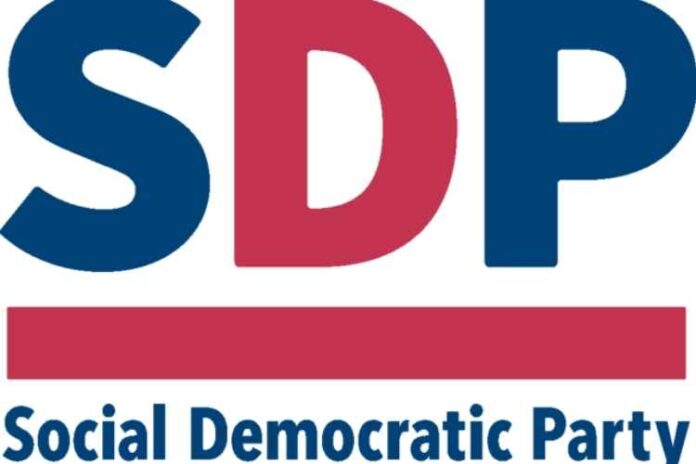Yorkshire Party is a regionalist political party based in Yorkshire, England’s ancient county.
It was founded in 2014 to advocate for the creation of a sovereign Yorkshire Assembly with powers over education, the environment, transportation, and housing inside the United Kingdom.
It presents itself as a social-democratic centrist party that believes “changing the way the UK political system operates is the best approach to address the everyday difficulties faced by people living in Yorkshire.”
The party has parish, town, district, & county councillors, and ran 21 candidates in the 2017 general election. In the 2018 Sheffield City Region mayoral election, the party received 8.6% of the vote.
For the 2019 general election, the party has nominated 28 candidates.
History of Yorkshire Party and Its Establishment
Yorkshire First was created by businesspeople Stewart Arnold and Richard Honnoraty, as well as management consultant Richard Carter, in 2014.
Carter was the party’s first presidential candidate. A spokeswoman for Mebyon Kernow praised the party’s start.
The Yorkshire Party gained 19,017 votes in the 2014 European Legislative elections in the Yorkshire and Humber constituency (1.5 percent ). Arnold, the party’s front-runner, called it “a really significant result.”
In 2015, the party ran 14 candidates in its maiden general election. The party also won seats on the town and parish councils for the first time.
On a global scale, the party was awarded observer membership in the European Free Alliance, which it later joined as a full member.
2016 Election in Sheffield Brightside & Hillsborough
The party ran 17 candidates across six local councils in 2016, as well as a by-election in Sheffield Brightside & Hillsborough.
Arnold succeeded Carter as the party’s head in July, with Chris Whitwood assuming the role of deputy leader. The Make Votes Matter Alliance for Proportional Representation welcomed the party.
In May 2017, the Yorkshire Party ran for mayor of Doncaster for the first time, saving its deposit in the process.
Furthermore, the party fielded seven candidates for local council elections. In the general election in June of that year, the party had 21 candidates and finished third in three constituencies.
As a result, the Yorkshire Party is now England’s sixth most popular political party, and one of just three that has increased its vote share since 2015.
Mick Bower, the party’s Rotherham candidate, was chosen to run for Mayor of Sheffield City Region in 2018.
The party came in third in three of the four participating council areas, defeating the Liberal Democrats and Greens in Barnsley, Doncaster, and Rotherham, with 8.6 percent of the vote.
The 22,318 votes received by the party were also the highest single-vote total in its history.
When Claire Palmer, the former mayor of Northallerton and a member of Hambleton District Council, and Mike Jordan, a high ranking Conservative councillor on Selby District Council and North Yorkshire County Council, defected in the summer of 2018, the party gained its first district and county councillors.
Jordan stated that he was entering the Yorkshire Party that he thought the party was not doing justice to the Yorkshire it deserves.
Small Parties Huge Impact
Whitwood was elected party leader in March 2019, and Laura Walker was named deputy. Whitwood voiced confidence in the Yorkshire Party’s ability to play a good role in everyday politics, characterising the current moment as a “great chance” for “small parties to make a huge impact and carry a huge amount of influence.”
On the fifth anniversary of the party’s founding, in April 2019, it fielded a remarkable number of candidates in municipal elections, more than doubling the previous high.
In the 2019 European elections, the party ran six candidates. None of the candidates were elected.
They ran 28 candidates in the 2019 general election, none of whom were elected, although they garnered the third-highest amount of votes with 29,201.
After the Brexit Party or the Ulster Unionist Party, they obtained the third popular vote of any party that did not win an MP election.
Related: Traditional Unionist Voice
Ulster Unionist Party Election in 2020
Following Whitwood’s departure in May 2020, teacher Bob Buxton was elected to fill Whitwood’s two-year term as leader.
Darren Longhorn, a businessman from Shipley, was named interim chairman of the party in June 2020.
Councillor George Derx of Doncaster’s Stainforth & Barnby Dun ward left the Labour Party to join the Yorkshire Party at the end of August 2020.
He claimed that the party has the “proper ideas for our region,” according to him.
The Yorkshire Party now has eight councillors in the local government as a result of this defection.
Bob Buxton, the party’s leader, ran for mayor of West Yorkshire in 2021 but lost, receiving 58,851 votes and 9.7% of the vote.

